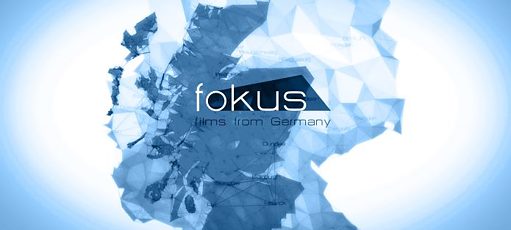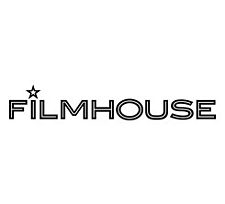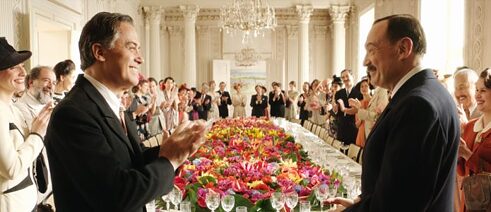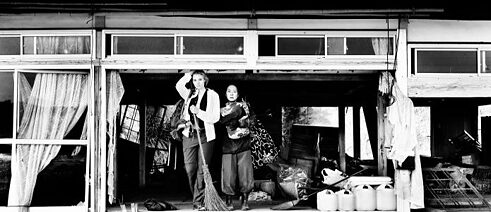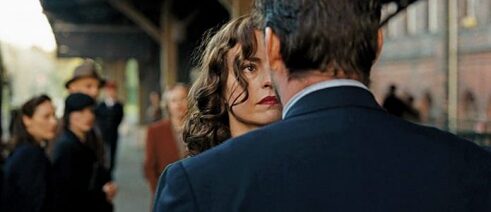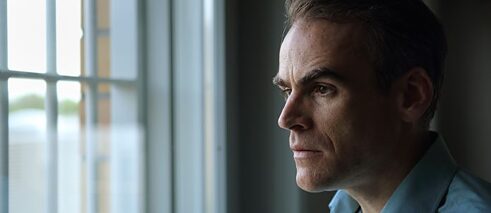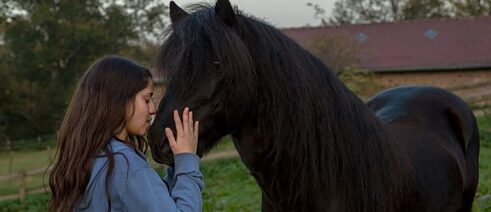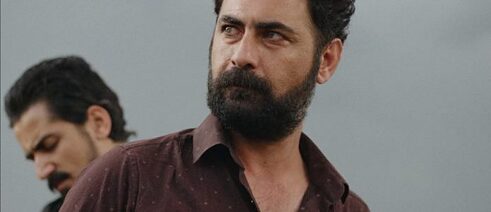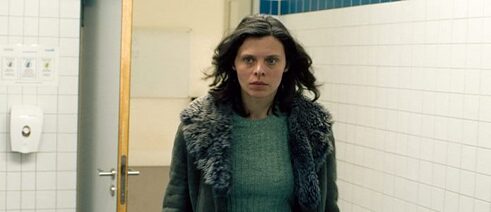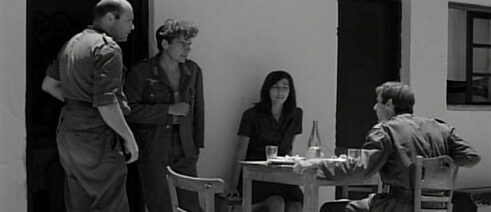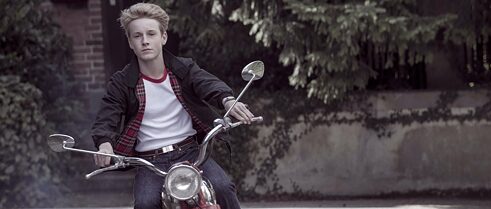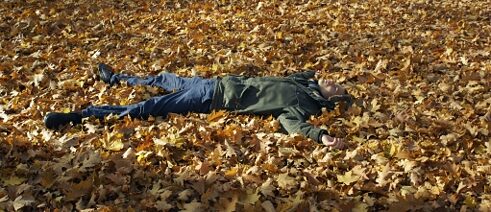FOKUS: Films from Germany 2017/18
23 November 2017 - 31 January 2018
Welcome to our third edition of Fokus: Films from Germany!
Once more we are presenting a selection of titles that represent the diverse nature of filmmaking in Germany.
Our opening Film Stefan Zweig: Farewell to Europe shows a perspective on Europe at a time when the project of a peaceful co-existence of nations was believed to have failed. Maria Schrader’s film follows the renowned writer Stefan Zweig during his years in exile. Having to watch the rise of National Socialism from afar without being able to interfere or help, Zweig sinks into deep melancholy. The film’s emotional impact relies on a strong visual language. Above that, the film manages to draw many fine lines to recent discourses on the future of Europe in times of strengthened right-wing nationalisms.
Nominated as the Austrian Film for the Oscars and with an outstanding performance by Austrian actor Josef Hader, Stefan Zweig: Farewell to Europe depicts the search of a refugee for a better and safe place to live while becoming aware that his home might be lost forever.
This year’s selection of films presents a diverse range of protagonists on the search for something; they are trying to find oneself or a place to belong, they are pursuing freedom in an exclusionary system and are seeking the truth or the power to make a decision.
The Culpable portrays three friends that are connected through their careers in the clergy when one of them is arrested on suspicion of having abused minors. Informed by the recent increase in revelations of sexual abuse in many clerical institutions, Gerd Schneider’s film explores the relationship between trust, loyalty and necessary vigilance in an institution that has been exempt from scrutiny for too long.
Sanctuary sets the focus on educational homes for allegedly difficult boys, most of them led by Christian institutions. Recent revisions make clear how these “homes” were used as labor camps and how violently they were led. Based on real live experiences, Marc Brummund’s film tells the story of Wolfgang who is trying to resist a system of violence and oppression and bears testament to the human strife for freedom.
House without roof and Fukushima, mon Amour, in contrast, show an entirely different aspect of searching – both films revolve around alienated characters who leave their homes and enter an unfamiliar territory where they are forced to confront and explore themselves and their origins.
Soleen Yusef’s House without roof sends three siblings on a journey from Stuttgart to Iraq. Against the will of their relatives they decide to honour their late mothers wish and bury her next to their father in the Kurdish village that the family left during the Iraq War.
Dorie Dorrie’s Fukushima, mon Amour shows Marie leaving for Fukushima as she loses control over her life. In the middle of the radiation zone and alone with the last geisha of the desolated town, the two women surprisingly find relief in each other’s company.
Michael Koch’s Marija and Ekrem Ergün’s Hördur portray two female protagonists who are trying to find their place and self-determination in an exclusionary society that only seems to offer limited options to them.
Marija is a young Ukrainian woman who lives on the illegal periphery of our production and consumer-oriented society in a run-down district of Dortmund. However, Marija does not accept the role of the victim.
Our film for young audiences, Hördur, accompanies 17-year-old Aylin on her way to self-discovery. Overwhelming responsibility at home and constant bullying at school drive her to lash out and Aylin finds herself doing community service on a horse ranch. It is there, away from the city and her problems at home, that she finds a friend and the strength to change herself as well as the people around her.
Our films Phoenix and Brother Jakob send their characters on a quest to retrieve something that was lost.
Christian Petzold’s Phoenix starts in 1945 in Berlin, months after the end of WWII. The Jewish woman Nelly Lenz returns home after surviving Auschwitz. She wants nothing more than to claim back her old life. But the people she used to know seem like strangers.
Brother Jakob is an intimately personal documentary exploring the relationship between the filmmaker Eli Roland and his brother Jakob. Jakob’s outlook has changed since he has adopted Salafist Islam as his religion, and a new distance has emerged between the siblings. While Jakob is searching for the truth, Eli Roland is searching for his brother.
In our small retrospective strand, we are tying into the Goethe-Institut’s collaboration with Filmhouse on presenting Werner Herzog’s oeuvre in Scotland. In continuation of their Herzog of the Month screenings, Fokus 2017/18 will present the short film Herakles from 1962 and Herzog’s first feature film Signs of Life from 1968 in cinemas across Scotland.
This last title should also be understood as a hopeful conclusion to our film selection. Despite their often serious themes of war, migration, exploitation and strife, we are convinced that all of these films manage to show their protagonists’ unquenchable thirst for life. This is shown through beautiful photography, emotionally complex storytelling and superb acting.
We wish you inspiring, entertaining and though-provoking viewing experiences!
Ann-Christine Simke (Programme Coordinator, Goethe-Institut Glasgow)
Eva-Maria Kleinschwärzer (Programme Assistant, Goethe-Institut Glasgow)
James Rice (Programme Manager, Filmhouse Edinburgh)
Marjolein den Bakker (Programme Officer, Filmhouse Edinburgh)
Lucy Rosenstiel (Programme Coordinator, Filmhouse Edinburgh)
Raymah Tariq (Programme Coordinator, Filmhouse Edinburgh)
-
23.11.
-
24.11.
-
24.11.
-
25.11.
-
25.11.
-
26.11.
-
26.11.
-
26.11.
-
26.11.
-
27.11.
-
27.11.
-
27.11.
-
27.11.
-
27.11.
-
28.11.
-
29.11.
-
29.11.
-
30.11.
-
03.12.
-
06.12.
-
03.01.
-
03.01.
-
04.01.
-
04.01.
-
05.01.
-
06.01.
-
07.01.
-
08.01.
-
08.01.
-
10.01.
-
17.01.
-
17.01.
-
24.01.
-
26.01.
-
26.01.
-
26.01.
-
27.01.
-
27.01.
-
27.01.
-
29.01.
-
31.01.
